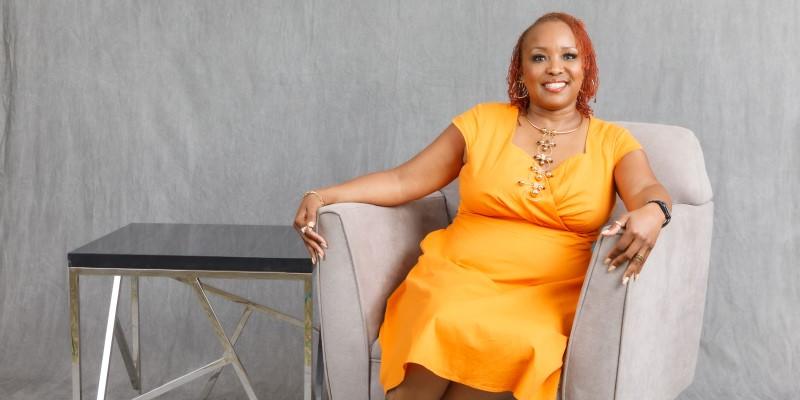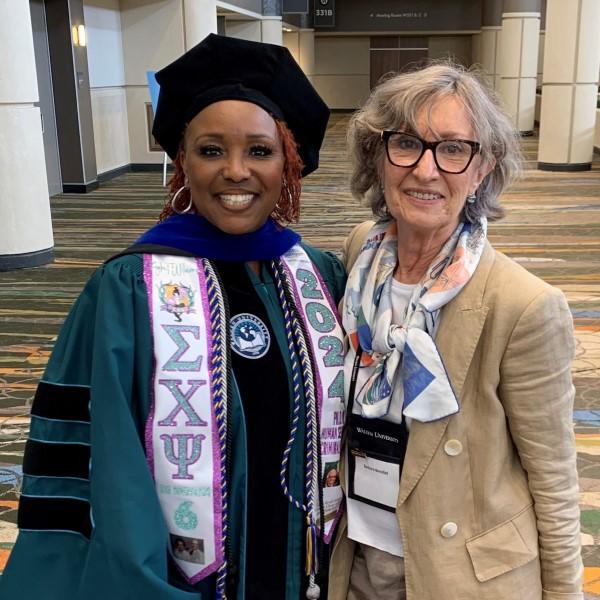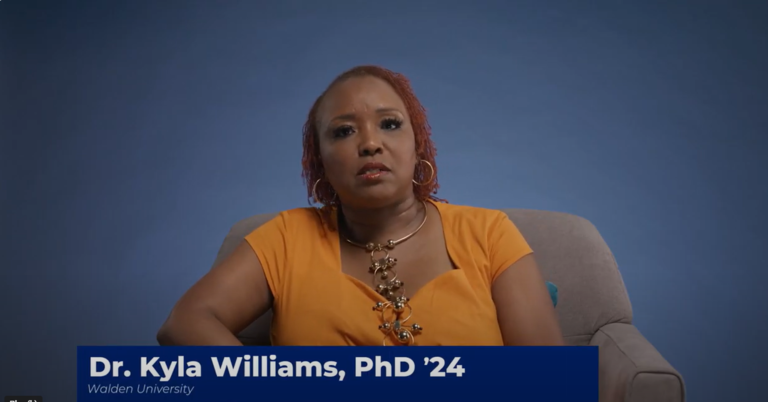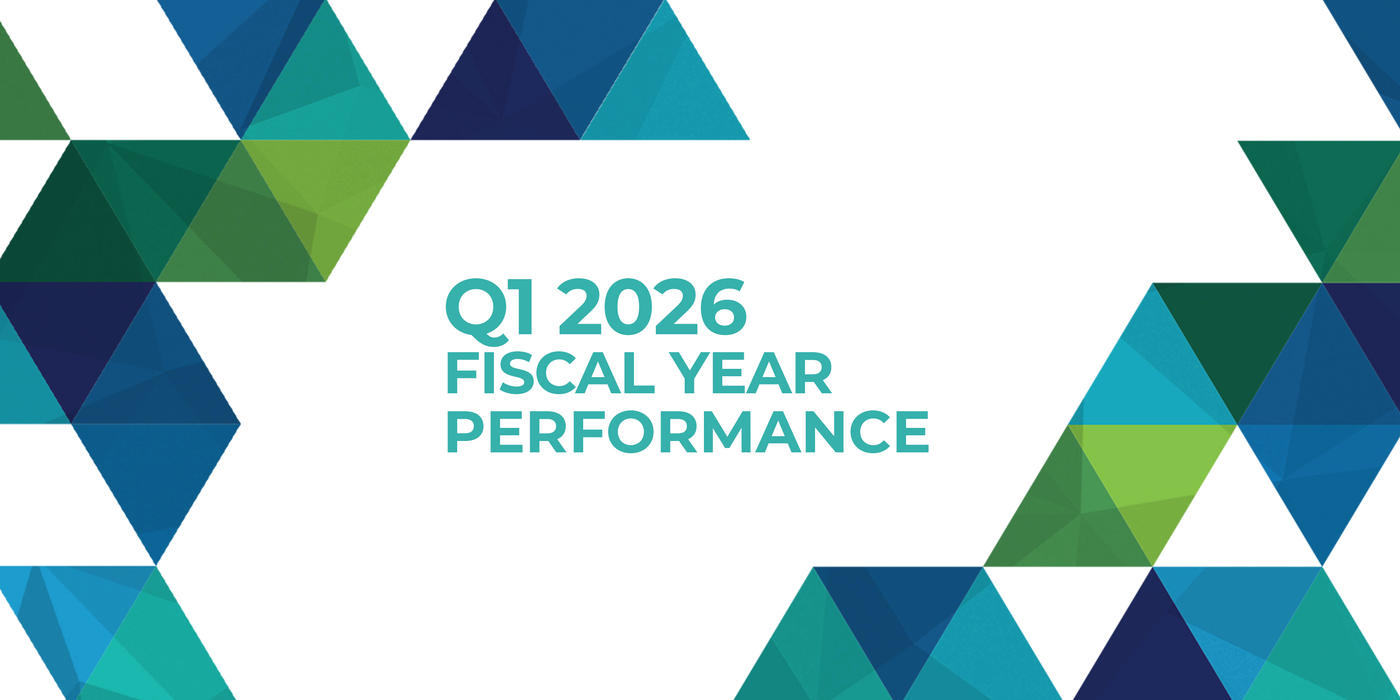What Kyla Williams, PhD ’24, learned as a police officer and PhD in Human Services student.
In cases of domestic or intimate partner violence, law enforcement and healthcare workers are often the first to make contact with a victim. Those interactions can be pathways to support—counseling, shelters, court proceedings—or another reason to stay silent.
In the gay community, unique challenges can exacerbate the issue. Lingering stigmas and the fear of being outed add to the challenge. Then there’s the issue of resources specific to this population.
Dr. Kyla Williams, left, with her dissertation chair, Dr. Barbara Benoliel, at commencement.
Like many police officers in Detroit, Kyla Williams, PhD ’24, investigated domestic violence across communities during her 26 years working to serve and protect. The experience inspired the dissertation for her PhD in Human Services from Walden University: “Understanding the Formal Help-Seeking Experiences of Gay Men Who Have Experienced Intimate Partner Violence During the COVID-19 Global Pandemic.”
She recently presented on the topic at the Michigan Coalition to End Domestic and Sexual Violence, and she serves on the Michigan Domestic & Sexual Violence Prevention & Treatment Board. She is also program director of Face Addiction Now, a nonprofit that “champions the power of compassion and respect in the recovery from substance use disorder.”
Making a Difference at the Intersection of Law Enforcement and Human Services
Here, Dr. Williams shares her journey from police officer to researcher.
Findings on the Experiences of Gay Men Seeking Help with Intimate Partner Violence
For her dissertation, Dr. Williams interviewed 11 gay men who had experienced intimate partner violence in relationships. In her conversations, three themes emerged:
- Continued discrimination toward gay men
- Lack of resources for gay men and the need for further training for law enforcement
- Negative attitude of those experiencing intimate partner violence toward police
Her hope is that members of law enforcement and the gay community benefit from her findings and use them to build better relationships and provide more targeted resources.
Public Health, Mental Health, and Intimate Partner Violence
The physical and mental tolls that intimate partner violence can have on individuals, families, and communities make it a public health issue according to Dr. Melvena Wilson, a visiting professor at Chamberlain University.
For Dr. Williams, this is why it was important to provide an individual and a community response to domestic violence. “We built coordinated responses with our community partners, not just in the prosecutor’s office, but all those in community outreach. It could be social workers, advocates, or someone with experience in transitional housing,” she says.
“When we graduate from the academy, we take an oath to protect and to serve. You serve them by helping them go down that right pathway of the resources that they need.”
Read “A Top Cause of Pregnancy-Associated Death: Domestic Violence.”
If you or someone you know is a victim of domestic violence, please reach out for help. Visit the Domestic Violence Support Hotline or call 1−800−799−SAFE (7233).
For more information, email the Adtalem Global Communications Team: adtalemmedia@adtalem.com.





